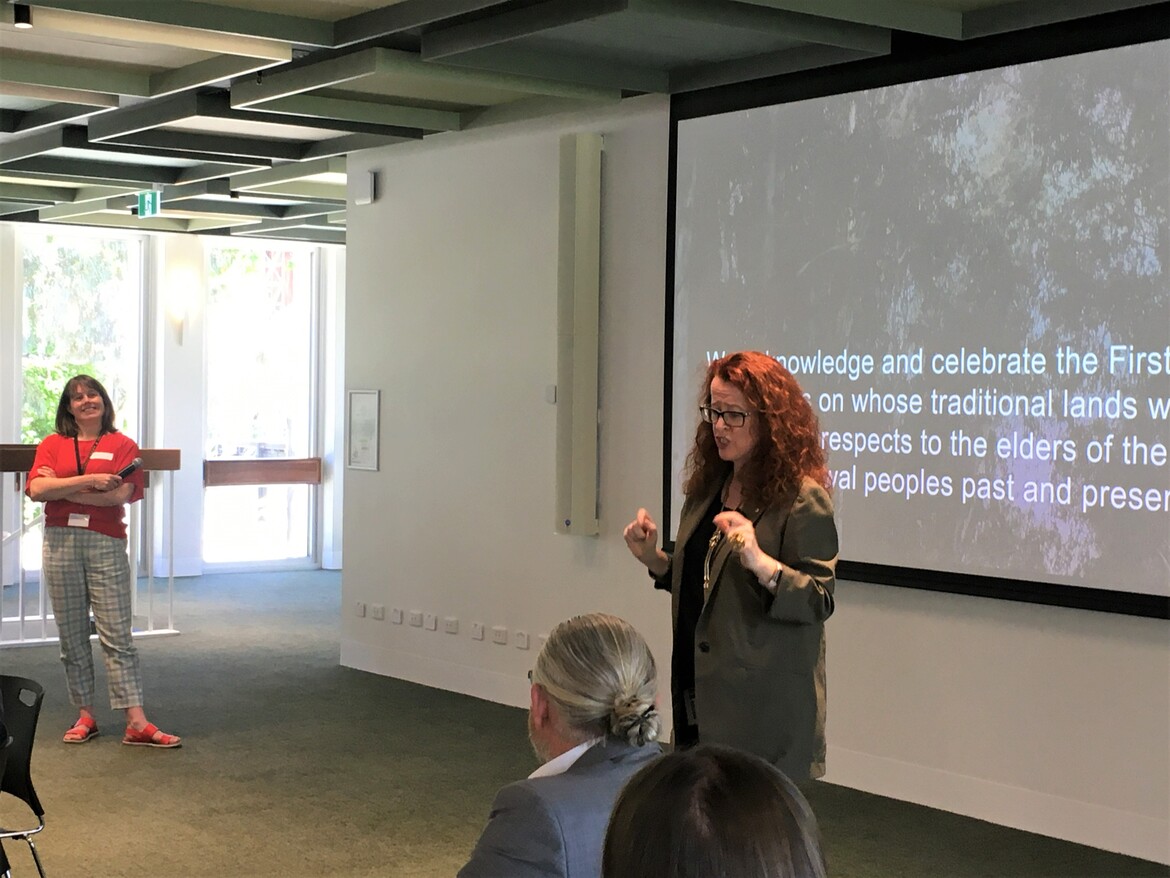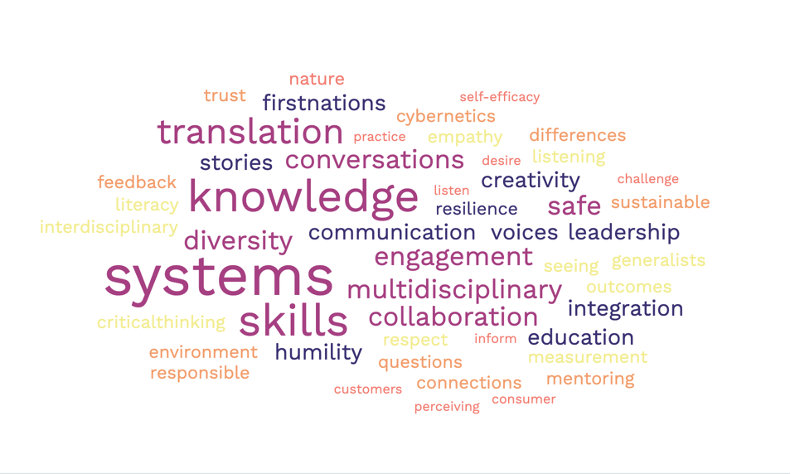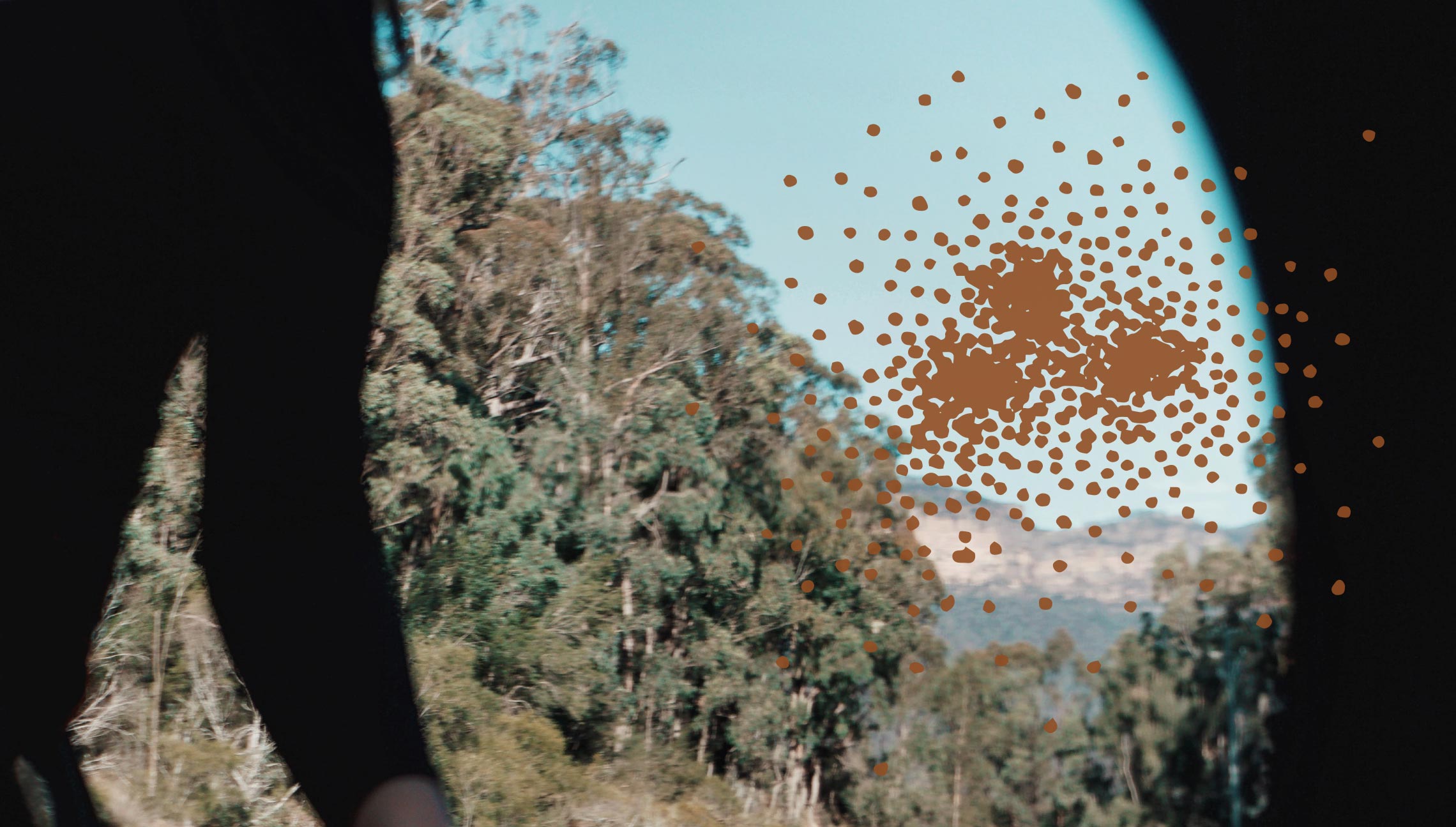During the School’s official launch celebrations, colleagues from across the country joined a working lunch in the award-winning Birch Building to discuss what will be the areas of focus for a new Cybernetic Practitioner Network co-founded with Humanitech, the Human Technology Institute, the Tech Policy Design Centre and Telstra Foundation.
Opened by Distinguished Professor Genevieve Bell, Director of the School of Cybernetics, participants from diverse sectors came together to imagine how we might develop new skills and create more spaces for people to connect in a shared language around futures built on safe, responsible and sustainable systems.


Professor Bell established the ANU School of Cybernetics to nurture and train a new generation of critical thinkers and doers equipped with the skills needed to navigate our increasingly complex world. At the Cybernetic Practitioner Network kick-off luncheon, she spoke of the growing need for practitioners to be able to respond quickly to changing situations and complex systems.
As part of the School’s ambition to establish cybernetics as an important tool for navigating major societal transformations, Professor Bell said that the Cybernetic Practitioner Network’s focus will be on fostering relationships between those interested in developing the new skills we need to manage them. A key theme was the need for us to collaborate and experiment in order to build new knowledge at scale.
“We need the willingness to experiment with different ways of teaching, researching and engaging. We need to be brave and a little bit bold in how we reimagine and remake universities for the 21st century, starting here in Australia. We are lucky to have allies and colleagues and champions here, and all over the world,” said Professor Bell.
A language for our times#
The curator of the 1968 London show Cybernetic Serendipity, Jasia Reichhardt, describes cybernetics as a language through which different fields and systems can communicate. Key works from this ground-breaking exhibition were on display as part of the School’s launch exhibition and public program, Australian Cybernetic: a point in time.
In her welcoming address, Professor Bell drew a thread from Cybernetic Serendipity to the ‘Computers and Electronics in the Arts’ program of Australia ’75: Festival of Creative Arts and Science and through to this point in time at the School of Cybernetics in 2022. Three moments representing points of expanding the cybernetic imagination, moments when audiences have been invited to consider a future through and with machines that can sense and act within the world.
Surrounded by early and more contemporary computer-generated artworks in the ANU’s Birch Building, guests at the Cybernetic Practitioner Network lunch were invited to contribute ideas about what they saw as critical skills to help us move towards a safe, responsible and sustainable technological future. The top skills identified in table discussions extended beyond technical knowledge.

Learn more about some of the future skills identified by Cybernetic Practitioner Network members as necessary for leading change: Cybernetic dialogues on future skills.
Discussion highlights#
Necessary and urgent shifts identified included seeing and doing through a much broader, socio/technical/ecological lens that honours place and First Nations’ connection to Country. Among new approaches needed to shape technology futures in an increasingly AI-enabled world, guests discussed the need to:
- Reframe what we mean by ‘technical literacy’
- Apply a systems lens to technology in the context of people and the environment
- Build greater cross disciplinary knowledge and translation
- Pay attention to relationships and between and across dynamic systems
- Look for the interconnections between things
- Engage generalists and creatives to work closely with technologists
- Ensure opportunities for broader entry to technology sector
- Respond to feedback loops in the design and build of dynamic technological systems
- Hold various ways of knowing simultaneously
- Use different measures of success for different voices.
‘Soft listening’ and ‘soft leadership’ that allows for diverse people to think and act in ways that meet their particular needs was raised by one participant as another essential aspect of leaning in to complexity. Another spoke of finding missing or hidden stories and being open to different ways of being and knowing. Being curious about and paying attention to technological prehistories and diverse knowledge systems are key themes at the School of Cybernetics.
Core skills identified as being essential for the future included empathy, a desire to be challenged and the capacity to sit in productive discomfort. Respecting others’ values and recognising the importance of lived experience were also raised as being important to an effective systems approach.
At the conclusion of the table discussions, representatives from founding partner organisations shared brief reflections on what they saw as the potential of this Network to build capability and progress our respective agendas to advance the skills and knowledge needed to navigate complex systems in 21st Century.
Get involved#
Throughout 2023, the Cybernetic Practitioner Network will host live and online skills development events to broaden the collective reach of our work. It is anticipated that participants may find new opportunities to co-design projects, progress joint research initiatives and collaborate on awareness campaigns.
To be informed of the 2023 schedule of events and be part of this multi-disciplinary professional Network please email Jackie Randles, Partnerships Lead ANU School of Cybernetics.

